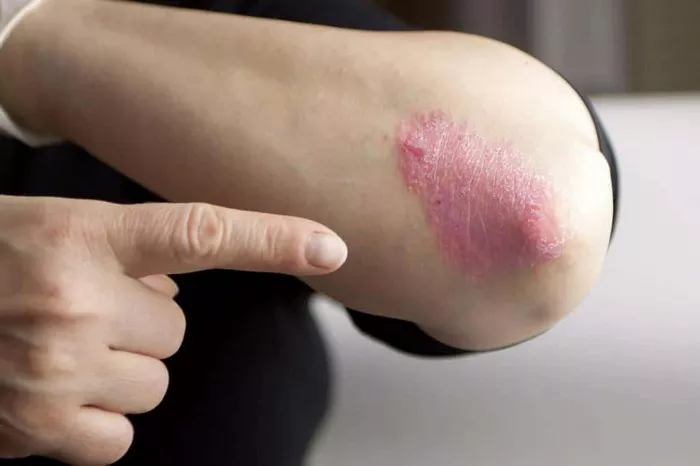Scalp psoriasis is a chronic autoimmune condition characterized by the rapid buildup of skin cells, leading to scaling, inflammation, and often painful plaques on the scalp. Affecting millions of individuals worldwide, this condition not only impacts physical health but also significantly affects emotional well-being due to its visibility and associated discomfort. Although there is no cure for psoriasis, various treatments and lifestyle changes can help manage the symptoms. One such approach is dietary modification, which can play a crucial role in alleviating the severity of scalp psoriasis.
The Role of Diet in Managing Scalp Psoriasis
While psoriasis is primarily a genetic and immunological disorder, emerging research highlights the significant impact of diet on inflammation and immune function. Certain foods can exacerbate inflammatory responses, while others may help reduce inflammation and support overall skin health. Understanding which foods to include and avoid can empower individuals with scalp psoriasis to take control of their condition.
Key Nutrients and Foods Beneficial for Scalp Psoriasis
1. Omega-3 Fatty Acids
Omega-3 fatty acids, found abundantly in fatty fish like salmon, mackerel, and sardines, are renowned for their anti-inflammatory properties. These essential fats help modulate immune function and reduce the production of pro-inflammatory cytokines, which are often elevated in psoriasis patients. Incorporating omega-3 rich foods or supplements can lead to noticeable improvements in skin health and reduce the frequency and severity of flare-ups.
2. Antioxidants
Antioxidants, such as vitamins A, C, and E, play a pivotal role in protecting skin cells from oxidative stress and inflammation. Fruits and vegetables, particularly those with vibrant colors like berries, leafy greens, and carrots, are rich in these vital nutrients. Regular consumption of antioxidant-rich foods can help mitigate oxidative damage and support the healing of psoriatic lesions.
3. Vitamin D
Vitamin D is crucial for immune regulation and skin health. Many individuals with psoriasis have been found to have low levels of this vitamin. Sunlight exposure is a natural way to boost vitamin D levels, but dietary sources such as fortified dairy products, mushrooms, and fatty fish can also be beneficial. In some cases, vitamin D supplements might be recommended to achieve optimal levels.
4. Probiotics
The gut-skin axis theory suggests that gut health significantly influences skin conditions, including psoriasis. Probiotics, found in fermented foods like yogurt, kefir, sauerkraut, and kimchi, help maintain a healthy gut microbiome. A balanced gut flora can enhance immune function and potentially reduce the inflammation associated with scalp psoriasis.
5. Turmeric
Turmeric, particularly its active component curcumin, has potent anti-inflammatory and antioxidant properties. Incorporating turmeric into the diet, whether through cooking or supplements, can help reduce inflammation and improve skin health. Studies have shown that curcumin can inhibit the activity of certain inflammatory pathways involved in psoriasis.
Foods to Avoid for Scalp Psoriasis
1. Processed Foods
Processed foods, often high in sugars, unhealthy fats, and additives, can exacerbate inflammation and trigger psoriasis flare-ups. Avoiding or minimizing the consumption of processed snacks, sugary drinks, and fast food is crucial for managing scalp psoriasis.
2. Red Meat and Dairy
Red meat and dairy products can contribute to inflammation in some individuals due to their arachidonic acid content, which can be converted into pro-inflammatory compounds. Opting for plant-based protein sources or lean meats like chicken and turkey can help reduce inflammatory responses.
3. Gluten
While the link between gluten and psoriasis is still being explored, some studies suggest that individuals with psoriasis may benefit from a gluten-free diet, especially if they have a sensitivity or celiac disease. Avoiding foods like wheat, barley, and rye can potentially reduce psoriasis symptoms in sensitive individuals.
4. Alcohol
Alcohol consumption can negatively affect immune function and exacerbate psoriasis symptoms. Reducing or eliminating alcohol intake can help improve the effectiveness of other dietary and treatment interventions.
Creating a Balanced Diet Plan for Scalp Psoriasis
1. Meal Planning Tips
- Incorporate Omega-3 Rich Foods: Aim to include fatty fish in your diet at least twice a week. For vegetarians, flaxseeds, chia seeds, and walnuts are excellent sources of omega-3s.
- Boost Antioxidant Intake: Fill your plate with a variety of colorful fruits and vegetables. Aim for at least five servings per day to ensure adequate antioxidant intake.
- Choose Whole Grains: Opt for whole grains like brown rice, quinoa, and oats over refined grains to support overall health and reduce inflammation.
- Stay Hydrated: Proper hydration is essential for skin health. Drink plenty of water throughout the day to keep your skin hydrated and support overall bodily functions.
- Include Probiotic Foods: Incorporate a serving of fermented foods daily to support gut health. This can be in the form of yogurt, kefir, or other fermented vegetables.
2. Sample Meal Plan
Breakfast:
- Smoothie with spinach, berries, flaxseeds, and almond milk
- Whole-grain toast with avocado and a sprinkle of turmeric
Lunch:
- Grilled salmon salad with mixed greens, cherry tomatoes, cucumber, and a lemon-olive oil dressing
- A side of quinoa
Dinner:
- Stir-fried tofu with broccoli, bell peppers, and carrots in a ginger-turmeric sauce
- Brown rice
Snacks:
- A handful of walnuts
- Carrot sticks with hummus
- A bowl of mixed berries
- Lifestyle Considerations
Stress Management
Stress is a known trigger for psoriasis flare-ups. Incorporating stress-reducing practices such as yoga, meditation, and deep-breathing exercises can complement dietary changes and enhance overall well-being.
Regular Exercise
Physical activity not only supports overall health but also helps reduce inflammation. Aim for at least 30 minutes of moderate exercise most days of the week. Activities like walking, swimming, and cycling are excellent choices.
Adequate Sleep
Quality sleep is essential for immune function and skin health. Establish a regular sleep routine and ensure you get 7-9 hours of sleep per night to help manage scalp psoriasis effectively.
Conclusion
Managing scalp psoriasis involves a multifaceted approach, with diet playing a crucial role in controlling inflammation and promoting skin health. By incorporating anti-inflammatory foods, boosting antioxidant intake, and avoiding known dietary triggers, individuals with scalp psoriasis can significantly improve their symptoms and quality of life. Alongside dietary changes, maintaining a healthy lifestyle with regular exercise, stress management, and adequate sleep is essential. While each person’s response to dietary changes may vary, a well-balanced, nutrient-rich diet is a cornerstone of effective scalp psoriasis management. Always consult with a healthcare professional before making significant dietary changes to ensure they are appropriate for your specific health needs.
Related Topics:






















